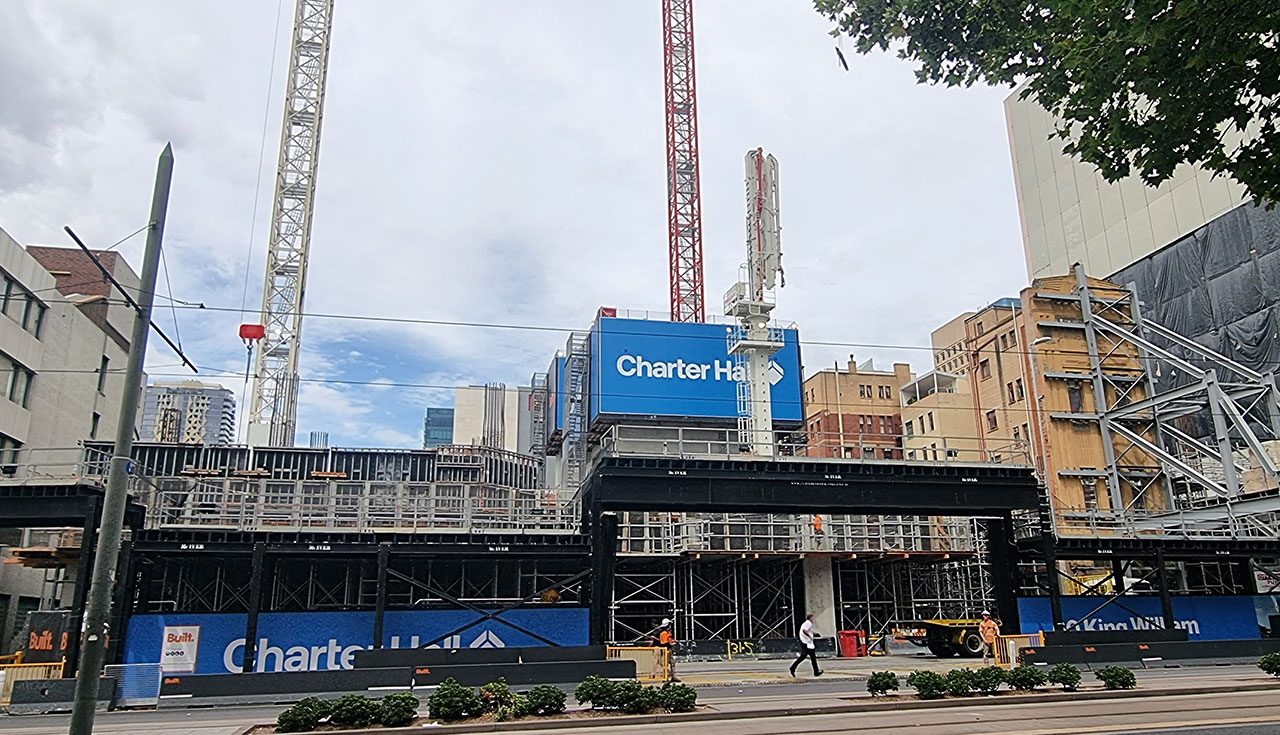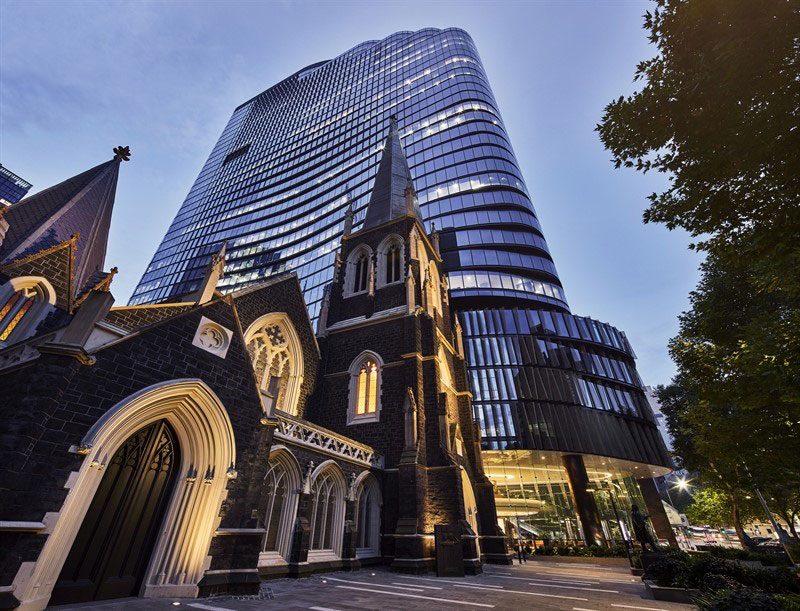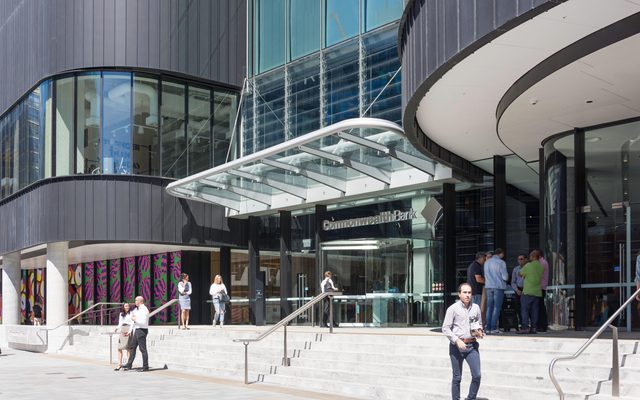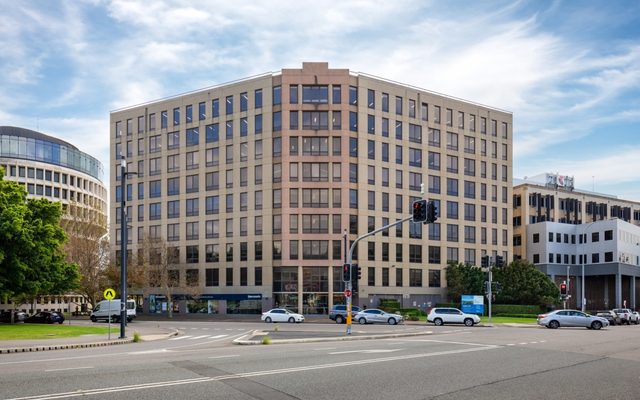This article is from the Australian Property Journal archive
THE owner of Australia’s best premium office towers, Charter Hall’s Prime Office Fund (CPOF) is expected to pursue asset sales of $850 million in the year ahead as declining valuations put pressure on its gearing levels.
The warnings come as S&P Global Ratings to downgrade its rating of CPOF, noting that it will likely recycle capital through asset sales over the next six to 12 months as it works through the tail end of its capital expenditure pipeline, and the fund has been reported to be shopping assets off-market.
“We expect the fund to pursue asset sales of between $450 million to $850 million in fiscal 2025, with sale proceeds to pay down debt. CPOF could outperform our forecasts if it achieves the upper end of this range,” S&P Global Ratings.
The fund is chancing its arm at divestments as its own portfolio continues to take a hit to valuations, and asset sales could lose potency in remedying its credit metrics, the firm said. The fund’s assets have so far reported valuation declines of 6.4% over the 12 months to the end of March.
“Increasing asset yields could result in (1) further valuation declines, which will reduce asset sale proceeds; and (2) reduction in funds from operations (FFO) that is greater than the yield on the asset divested, and consequently, the debt repaid.
“CPOF’s credit metrics will remain subpar for a ‘BBB’ rating, at least over the next 24 months, in our view. The Australia-based wholesale office fund faces rising interest costs, elevated debt levels and declining asset valuations at a time of structural and cyclical weakness in demand for office space.”
Charter Hall is looking at recycling capital into major projects such as its $1.8 billion Chifley South development in Sydney.
The broad malaise in the office sector that started with COVID emptying workplaces drove a slowdown in the sales of Australian commercial real estate to a decade-low of $39.6 billion in 2023, according to MSCI, amid a wide gap between vendor and buyer expectations on pricing.
However, the sector has just seen a flurry of transactions, albeit with pricing reflective of the hit taken by office values. Mirvac divested the 40 Miller Street office building in North Sydney to Barings for $140 million and 367 Collins Street in Melbourne for $345 million, both at 20% discounts to peak book values, while Swiss fund AFIAA sold 628 Bourke Street for $115.8 million – some $70 million below what it paid seven years ago,
Meanwhile, opportunistic investor RF CorVal last week acquired two regional office buildings from Dexus for $43.3 million, at over 20% discount to the recent book value and over 35% below the peak, and the Australian Unity Office Fund has finalised the sale of a relatively brand new office building in Brisbane’s south, for $29.7 million, below the price it paid just three years ago.
Equity raising may be required: S&P
S&P Global Ratings said CPOF could require “sizeable” equity raising as soon as fiscal 2026 to sustain FFO to debt above 6%.
“Absent timely support from equity holders, the fund’s credit metrics and covenant headroom could materially weaken.”
At the end of March, the fund reported a weighted average cost of debt of 3.7%, fixed hedged interest rate of 1.75%, and 81.3% hedged debt portfolio.
“Importantly, CPOF has a relatively short-dated 1.5 years weighted average hedge expiry,” S&P Global Ratings said.
CPOF has no debt maturities over the next 12 months and a “manageable” $257 million in fiscal 2026, it noted, however, the weighted average debt maturity profile has over one year to 3.8 years from 4.8 years.
At the end of March, CPOF’s lease book carried a weighted average lease expiry (WALE) profile of 6.3 years and a high occupancy of 96%. S&P Global Ratings said it expects cash collections to remain robust as the fund’s tenant book is underpinned by about 35% exposure to governments and related entities.
“This outsized exposure improves CPOF’s occupancy, while the longer-dated WALE underscores earnings stability.
“That said, about 11% of the fund’s leases (measured by net income) are due in the next 12 months (as of March 2024). Re-leasing a sizeable portion of its leases increases near-term volatility. Offsetting this is CPOF’s portfolio of prime grade assets (98%), which should remain attractive to prospective tenants.”





